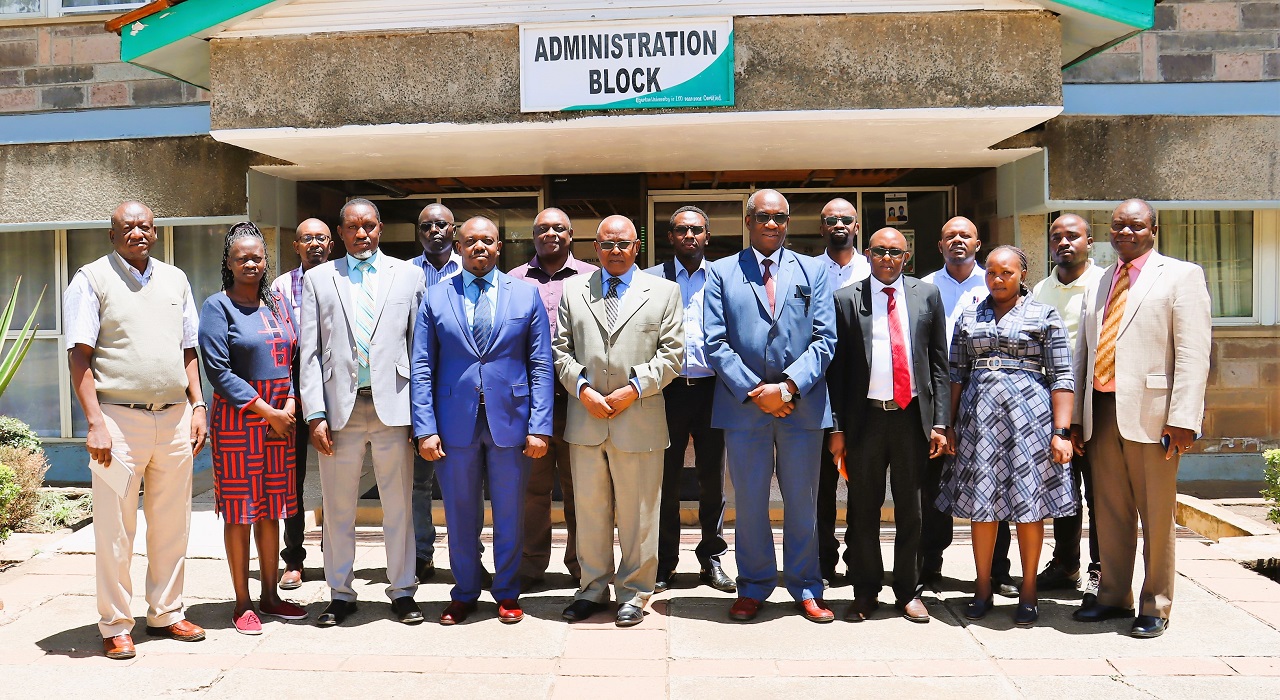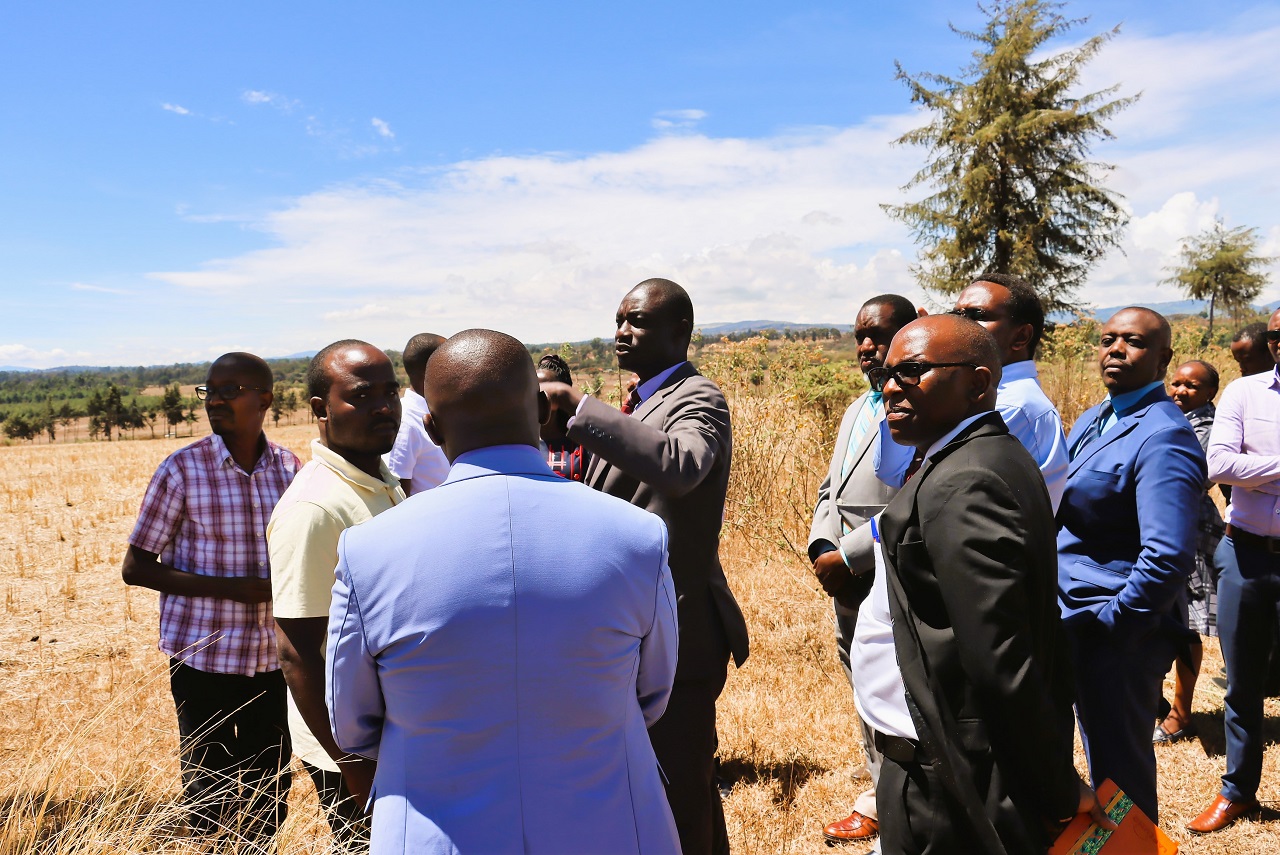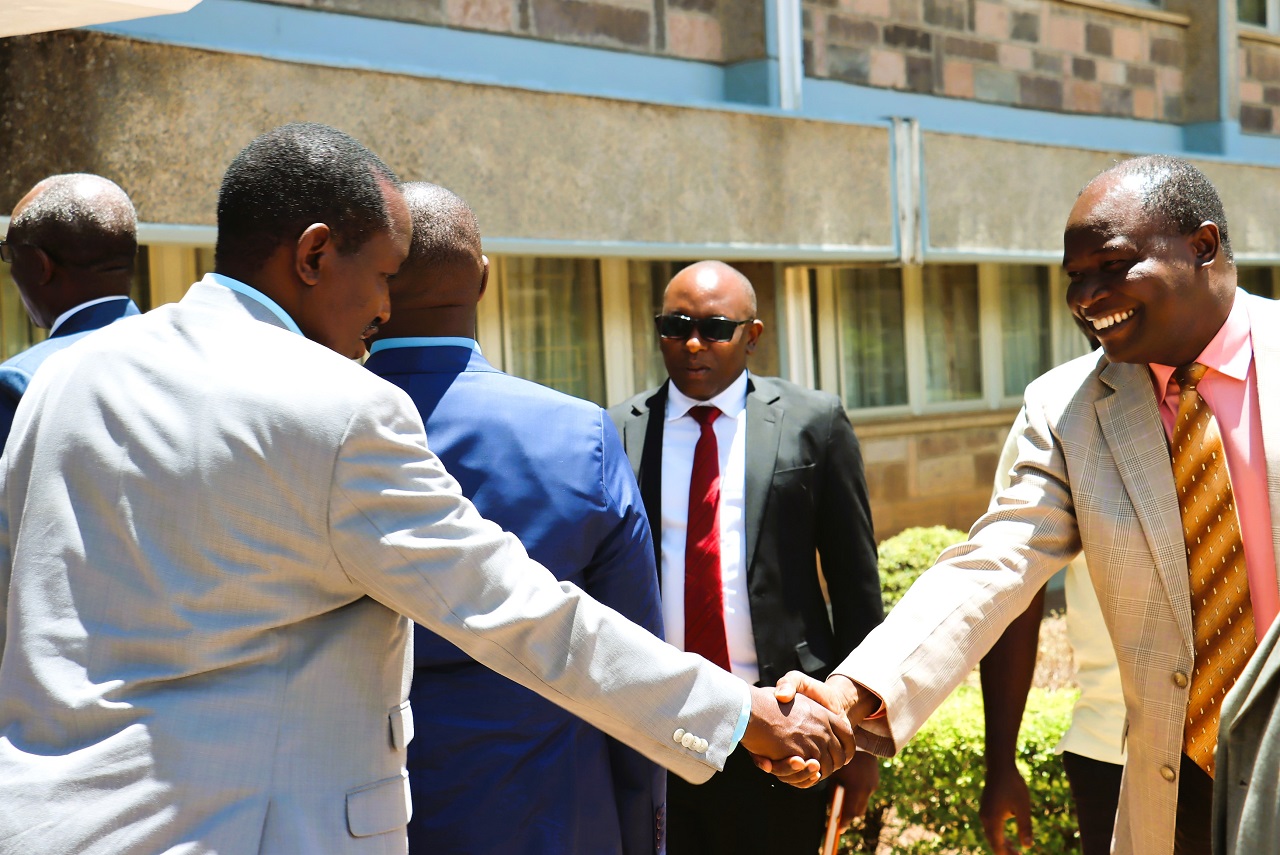Egerton University, under the leadership of Vice Chancellor Professor Isaac Kibwage, has recently been in talks with the County Government of Nakuru and the Ministry of Investment, Trade, and Industry (MITI) to pool resources on an exciting new project.

The proposed project involves expansion of 10 year old Agro-science Park project at Egerton into a regional Agro-industrial park on a 200-acre piece of land at the Ngongogeri Farm of the University. Agro-science Park is one of the Flagship projects together with Chemeron dryland and Eco-tourism centre and Rehabilitation of Mau Ecosystem through River Njoro and Run for the Mau which is held annually.
This project is one of six flagship projects being undertaken by the Ministry of Investment, Trade, and Industry under Flagship EPZ Manufacturing Hubs in various counties in collaboration with county governments. The Lord Egerton agro industrial Park will be part of the six EPZ flagship project that will include: Delmonte in Kiambu County, KPCU Sagana in Kirinyaga County, ICDC industrial Park ib Eldoret Uasin Gishu Country, Busia County and Nyamira County.
The proposed industrial park is expected to have a significant impact on the local economy, creating thousands of jobs for the local people and pitching Nakuru as a world-class trade and investment destination. This project is being implemented by the Export Processing Zones Authority, the Technical University of Kenya (TUK), the County Government of Nakuru and Egerton University as the host Partner.
During a recent visit to the proposed site at Egerton University's section of Ngongongeri Farm, the County Executive Committee Member (CECM) for Trade, Industrialization, Culture, and Tourism, Chief Staff Dr Ketienye, Mr. Stephen Kuria, expressed his support for the project and highlighted its potential to drive economic growth in the region. Mr. Kuria was accompanied by the CECM for Lands, Mr. John Kihagi, Chief of Staff Dr. Peter Ketyenya, and Chief Officer for Trade, Business Support, and Industrialization, Mr. Samuel Ndegwa.
The proposed industrial park is expected to leverage Egerton University's existing strengths in agriculture and agribusiness to create a hub for innovation, research, and enterprise in the sector. The park will provide a platform for entrepreneurs, investors, and businesses to collaborate and develop new products, services, and technologies. This will not only create job opportunities but also help to improve the quality and competitiveness of the agricultural sector in the region. Among the institutions that are currently hosted in Agroscience Park include Kilimo Trust which deals regional marketing and regenerative agriculture, Seed companies who conduct trials annually, Chemical companies and also farmers who are interested in technology transfer.
The partnership between Egerton University, the County Government of Nakuru, and MITI is a testament to the importance of collaboration and strategic partnerships in driving economic growth and development. By working together, the partners can leverage their respective strengths and resources to create a project that will have a significant impact on the local economy and the lives of the people in the region.
The overall goal is that the Lord Egerton City will contribute to Agriculture Sector Sector Transformation and Growth Strategy (ASTGS) of Setting-up 6 agro-processing hubs across Kenya using PPP (Flagship 3), unlocking 50 new large-scale private farms of 2500acres (Flagship 4) and strengthening research and innovation, linking farmers & SME to knowledge centres (Flagship 8), sustainable and climate smart natural resource management (Flagship 9). Its also expected to contribute to rebuilding the university into a regional centre of excellence and boost university finances through leases, Royalties, own value addition e.g dairy and cereals (bread), fish, vegetables. According to feasibility studies conducted by World Bank, Egerton Agropark will cover 9 counties neighbouring Nakuru County in central Rift, over 10milion people and raw materials source from one million Hectares of arable land with over 10 research & Agricultural institutions. The region will focus on Manufacturing of key products including cereals, tea, coffee, pyrethrum, flowers and vegetables, Timber, pharmaceticals and livestock and dairy processing. The park will also exploin cheap cheap Geothermal power by GDC in Menengai area.
The proposed industrial park is just one of several initiatives being undertaken by Egerton University to promote economic growth and development in the region. The university has a long history of engagement with the local community and has played a key role in driving innovation and development in agriculture and agribusiness. According to Prof Paul Kimurto who is the Director of Marketing, Resource Mobilization and Agropark, the park will focus on three key areas of Agricultural R & D, Innovation and agricultural Referral labs food safety, Seed quality, Animal products, Fertilizer and soil labs and mechanization; Incubation Centre ( agro-biotechnology Innovation; Seed unit and variety development, herbal medicine, agro-food Industry and nutritional Products, Engineering and Renewable Energy) and Demonstration farms and medium scale manufacturing hub for value addition. During the visit, Resource mobilization officer Mr Moses Ouma noted that Egerton will also host the Land Commercialization (LCI) led by Ministry of Agriculture and Livestock development with main goal of commercializing and improving the efficiency and effectiveness of large farms of 2500 acres held by government through PPP initiatives to increase food supply and reduce imports.
The VC emphasized the University's commitment to promoting sustainable development and entrepreneurship is reflected in its various programs and initiatives, including the Agri-Science Park, CESAAM, TAGDEV, CoELlB, and Molecular lab which provides support and resources to entrepreneurs and start-ups in the sector.
The proposed industrial park at Egerton University represents a significant opportunity for the region to drive economic growth and development. The partnership between the university, the County Government of Nakuru, and National Government is an excellent example of the power of collaboration and strategic partnerships in driving innovation and enterprise. The project has the potential to create youth employment of 2000-5,000 new jobs from graduates &TVET and also consultancy-professionals jobs of approximately 500-1000. The Park also will contribute to Big 4 Agenda of manufacturing, Affordable housing, food and nutrition security, Universal health coverage. Overall the manufacturing hub will improve the quality and competitiveness of the agricultural sector, and pitch Nakuru as a world-class trade and investment destination. It is an exciting time for the region, and we look forward to seeing the project come to fruition.
By Kurian Musa/ This email address is being protected from spambots. You need JavaScript enabled to view it.












